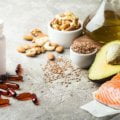Ismet Yilmaz fills his new Turkish eatery, Istanbul Cafe & Bakery, with a lot of energy. Even if only a few clients occupy tables inside the bare-bones area, it seems active. Conversations erupt throughout the counter, among tables, and even at the front door, where acquaintances greet each other in English, Turkish, and a smattering of Eastern European languages.
Turkey has long been a culinary crossroads at the brink of Europe and Asia, but right here in Denver, the rarity of Turkish delicacies creates a demand among immigrants from different nations with similar ingredients—Bulgaria, Georgia, Bosnia, and Herzegovina, to name some.
Istanbul Cafe & Bakery is tucked into a shopping center at the nook of Leetsdale Avenue and South Monaco Parkway, in a section of east Denver with an enormous populace of Russians and Eastern Europeans. Although the eatery just opened at the beginning of April, Yilmaz says that clients are already lining up for tables on Saturday and Sunday mornings. “For fifteen years, I dream of this,” he provides, pointing to his put-up-lunch snack of fistiki baklava (certainly one of the numerous baklava types he sells) and tea sipped from an hourglass-shaped vessel.
Yilmaz was born in Artvin, Turkey, near the Georgian border, but he grew up in the port town of Izmir. He began his culinary profession operating in resort motels in Turkey before transferring to New York City. Eleven years ago, he came to Denver, keeping the dream of owning his own business alive until 2017, when he made it a reality by launching his food truck, Turkish Chef on Wheels. “It’s nonetheless the most effective Turkish meals truck in town,” he notes.
That became simply the start, though: He wanted to open a brick-and-mortar area, and with the help of enterprise companions Soner and Marla Celik, he determined this spot and opened Istanbul Cafe. Many Turkish dishes, kabobs, spit-roasted meats, manti (small meat-crammed dumplings), stuffed grape leaves, and flaky pastries, for example, are familiar to enthusiasts of the Mediterranean and Middle Eastern meals are preferred. Yilmaz attributes that to the influence of the Ottoman Empire, which ruled for centuries over Turkey, the Balkan Peninsula, the eastern Mediterranean, and elements of North Africa.
The savory avenue meals he sells from his meals truck don’t stray too far from the anticipated (though he does construct his red meat-and-lamb döner kebab spits by hand, an unusual exercise right here). But at Istanbul Cafe, the form of breakfast and lunch options delves a great deal deeper into meals seldom visible in Denver.
For starters, there are breakfast platters built in how Turkish people often start their mornings — with a little of everything. The Annie’s (Mom’s) Plate comes with enough cheeses, veggies, savory pastries and bread (with several spreads), eggs, and olives for two people for $20; the $12 Baba’s (Dad’s) Plate comes with a similar however scaled-lower back choice. Small cups of Turkish coffee make a terrific accompaniment if you’d pick something more potent than tea.
Specialty bread includes ACMA, which Yilmaz describes as a move between a bagel and a croissant. The dough is layered and twisted into a circular form, developing a slightly chewy but mild crumb while baked. Acma comprises much less butter than croissants, although they’re not as flaky or oily. Istanbul Cafe serves them simply with Nutella or as a breakfast sandwich with egg and sucuk, as well as sausage with awesome notes of cumin. You can also get grilled breakfast and lunch sandwiches, called ghosts, made on sourdough bread.
Like ACMA, some other bagel-fashioned roll is the limit; it has a texture that is more like a tender pretzel and a generous coating of sesame seeds. And polacca buns resemble little footballs filled with feta cheese. Layered savory pastries known as borage are loaded with cheese and served in rectangular slices; Yilmaz says they may be quality eaten together with your palms. He works with a wholesale bakery to create baked goods for his keep; the sun bore comes to the cafe uncooked and baked in-shop to introduce freshness. A 2nd bakery affords four styles of Bosnian-style borek, coiled pastries full of ground beef, potato or cheese, and spinach.
For dessert, the cafe offers seven extraordinary pastries, several variations on baklava, packed with either pistachio (Yilmaz insists on using nuts imported from a well-known pistachio-growing vicinity in Turkey) or walnuts. Others consist of kadayif (with layers of shredded dough), fish sarma (deep-green cylinders of pistachio paste), and Soviet (just like baklava, but with a creamy filling). Yilmaz additionally stocks his cafe with canned and bottled Turkish liquids and Marash, an emblem of goat milk ice cream that is as recognizable in Turkey as Baskin-Robbins is in the U.S.
The cafe is set up for counter service, so clients order and pay before grabbing a table and looking forward to their food. A pair of Russian girls at one desk may also find fellow Russians and discuss what they leave out. Curious Denver natives pop in for a flavor of something new. Turkish clients are already greeted as regulars. Yilmaz explains that the town’s Turkish population is small, so he has to rely upon a ramification of customers to construct a solid base.












